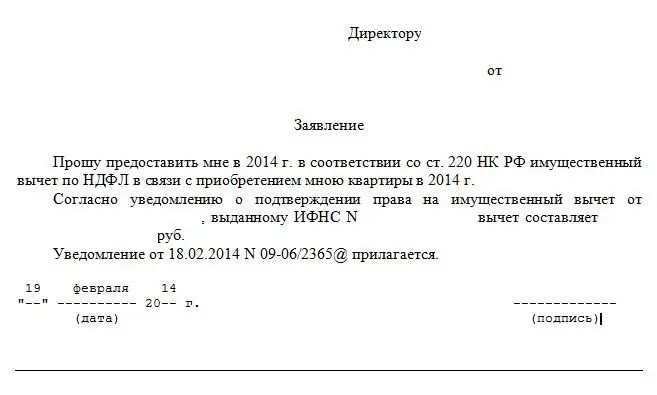2026 Author: Howard Calhoun | calhoun@techconfronts.com. Last modified: 2025-06-01 07:12:56
According to the current legislation, the right of ownership allows the owner of the property to own it and dispose of it at its own discretion. However, some regulations provide grounds under which this opportunity may be lost or challenged. As a result, the object will be claimed from the owner. To avoid such a situation, the law provides title insurance for real estate. Consider what it is.

General information
Title insurance of real estate is protection against the risk of material losses that may arise from a bona fide purchaser in connection with the loss of ownership. Such a threat appears if defects are found in the documentation. A title is actually a paper confirming the exclusive right to own property.
Risk causes
Real estates are often the subject of a long chain of sales transactions. If it turns out that one of them was committed oncein violation of the law and can be challenged (for example, by heirs), then, in accordance with a court decision, the ownership of subsequent owners is canceled. This may arise if, for example, the opinion of a minor was not taken into account during the privatization of an object, or one of the owners was in prison. This situation is typical for secondary housing. In the primary market, loss of ownership occurs when a developer tries to sell one apartment to several buyers.

Why protect against risk?
Title insurance of real estate transactions acts as a guarantee for a bona fide purchaser if the object is reclaimed from the owner. The main circumstances under which this can happen are:
- Conclusion of a contract of sale with the participation of incompetent legal entities or incompetent citizens, in violation of the law.
- The right of ownership after the alienation of the object remained with third parties, and so on.
Title insurance is one of the requirements of a number of banks that issue loans to individuals to purchase a home. Protection against the risk of material losses is a mandatory item when obtaining a mortgage.
Subject of the contract
Title insurance can be issued for residential or non-residential buildings, parts of structures or premises, land. In addition, you can protect the property interests of the owner. The subject of insurance in such cases isthe right to dispose, own and use real estate.

Invalidity of the contract
Title insurance includes several cases in which the owner is given the opportunity to protect their rights. Such an event, for example, is the adoption of a court decision. Upon its entry into force, the rights of the owner are annulled. As one of the special cases is the recognition of the invalidity of the contract of sale. A deal can be considered as such if:
- Contradicts laws and regulations.
- Concluded in opposition to the foundations of morality and law and order.
- Covering another deal.
- Does not imply corresponding legal consequences.
- Committed by a partially or completely incompetent citizen or legal entity.
- Concluded by a minor between the ages of 14 and 18.
- Done under the influence of delusion.
- Performed by a capable person who was unaware of his actions and unable to control them.
- Concluded under the influence of threat, violence, deceit, malicious agreement, difficult circumstances.

Property title insurance: cost
The amount is determined based on various factors. There are the following criteria for title insurance:
- The price of the object according to the contract of sale.
- Cost according to BTI.
- Market (actual) value of the area on the date of insurance.
- Other factors. These include, for example, the amount of a loan secured by living space.
The amount of insurance should not exceed the actual value of the object. During the term of the contract, its size can be changed. For example, when the owner carries out a major overhaul, it can be increased in proportion to the costs. The owner is paid compensation equal to the amount under the contract for title insurance of the apartment. The cost of lost property is not the only payment that is provided for in the event of appropriate circumstances. Legal costs and payment of a lawyer representing the interests of the owner are also compensated. The size of the amount, among other things, is affected by:
- Term of the insurance contract.
- The level of risk that is established by legal expertise.

In accordance with the term of insurance for protection against all threats, that is, in the event of loss of ownership due to any of the above circumstances, the rate will be:
- For a year - 0.4-1%.
- Three years - 1.5-2%.
- Ten years - 2.2-4.0%.
Thus, the contract can be concluded for a period of 1 to 10 years. According to domestic law, the sale can be disputed within three years, and in some cases this period can be extended up to ten years.
Subjects of law
Title insurance availablefor legal entities, individual entrepreneurs and citizens who are owners of property. However, they must be registered in Russia. The first step before the direct conclusion of the insurance contract will be the collection of all necessary papers relating to the transaction. On the basis of these documents, the possibility of subsequently filing claims against the unfair new owner will be assessed. The insurer will calculate the rate according to the level of risk. The next step will be the choice of the company with which the contract will be concluded. At the same time, it is necessary to carefully study the permitting documents of firms (licenses), their financial condition. In addition, you should first familiarize yourself with the rules and conditions for the provision of their services. From the entire list, you will need to choose the most suitable company.

At the final stage, the contract is prepared and agreed upon. For its conclusion, the personal presence of the owner at the office of the company is necessary. As a general rule, one copy of the document remains with the representative of the company, the second is transferred directly to the owner himself. In the event of an insured event, in order to receive the due compensation, it will be necessary to provide documented evidence of the events that have occurred.
Recommended:
What is a property deduction, who is en titled to it and how to calculate it? Article 220 of the Tax Code of the Russian Federation. property tax deductions

Russia is a state in which citizens have a lot of rights and opportunities. For example, almost every citizen of the Russian Federation has the right to receive a property deduction. What it is? Under what conditions can it be issued? Where to go for help?
Insurance: essence, functions, forms, concept of insurance and types of insurance. The concept and types of social insurance

Today, insurance plays an important role in all spheres of life of citizens. The concept, essence, types of such relations are diverse, since the conditions and content of the contract directly depend on its object and parties
How much does it cost to enter into the driver's insurance without experience. How much does it cost to include a person in insurance?

Sometimes it becomes necessary to make changes to the OSAGO policy. For example, indicate that another person can drive the transport. About how much it costs to enter into the insurance of a new driver and how to do it, read the article
Common property of an apartment building - what is it? Maintenance and repair of the common property of an apartment building

The legislation of the Russian Federation adequately regulates in detail the procedure for the use of common house property by apartment owners. What are the key provisions of the relevant rules of law?
Types of property insurance. Voluntary insurance of property of citizens of the Russian Federation. Property insurance of legal entities

Voluntary property insurance of citizens of the Russian Federation is one of the most effective ways to protect your interests if a person owns some property

